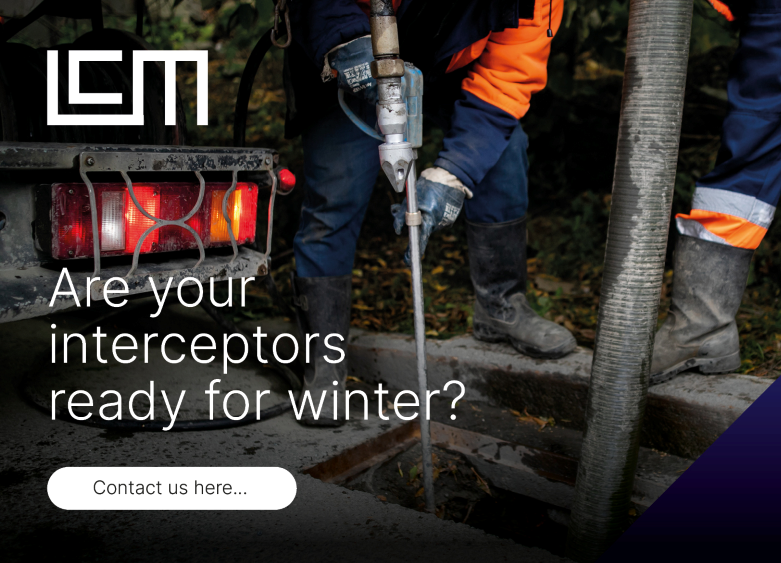
Intercept(or) the Winter – Best Practices
As winter approaches, it’s essential to prioritise the maintenance of your fuel-water separators, or interceptors. These devices are essential in preventing oil and grease from entering the sewer system, protecting your business and the environment.
Why Interceptor Maintenance Matters?
- Environmental Compliance: Failing to maintain your interceptors can lead to environmental violations and costly fines.
- Operational Efficiency: Well-maintained interceptors ensure smooth operations and prevent disruptions due to blockages or malfunctions.
- Safety: Proper maintenance helps mitigate the risk of spills and other hazardous incidents.
Key Maintenance Steps:
- Scheduled Inspections: Conduct thorough inspections twice annually, with heightened focus during autumn and winter. Increased precipitation and colder temperatures can exacerbate challenges for your interceptor.
- Debris Removal: Regularly remove debris, sediment, and oil/grease buildup to prevent blockages and maintain optimal functionality.
- Winterisation: Prior to winter’s arrival, ensure the interceptor is thoroughly cleaned and free of sludge or debris that could contribute to ice formation.
- Emergency Response Plan: Develop a comprehensive emergency response plan to address spills, blockages, or other incidents. We can assist you in creating a customised plan – simply contact us at hello@lcmenvironmental.com.
- Wastewater Management: Avoid overloading the interceptor with excessive wastewater.
Legal Considerations
While the specific legal requirements for interceptor maintenance vary by region, it’s generally considered best practice to have an interceptor in place for businesses operating in areas prone to oil spills.
Interceptor alarms are mandatory for fuel bulk storage sites to prevent oil contamination. Even in regions where interceptors are not legally required, their installation is highly recommended to minimize environmental risks and demonstrate corporate responsibility.
Adhering to BS EN 858-2:2003
To ensure your interceptor meets industry standards and complies with regulatory requirements, it’s essential to adhere to the BS EN 858-2:2003 standard. This standard outlines the best practices for the maintenance, operation, installation, and specification of light liquid separators.
Key requirements of the BS EN 858-2:2003 standard include:
- Automatic Warning System: Install an automatic warning device or high-level alarm to alert you of potential issues, such as rising liquid levels or blockages.
- Regular Maintenance: Conduct scheduled maintenance at least every six months to ensure optimal interceptor performance and prevent problems.
- Integrity Testing: Undergo an integrity test every five years (maximum) to verify the structural integrity of the interceptor and identify any potential defects.
- Recordkeeping: Maintain comprehensive service and maintenance records to demonstrate your commitment to compliance and for inspection purposes.
By following these guidelines and complying with your local regulations, you can protect your business, and the environment- and avoid costly legal consequences.
Need assistance? Our team of experts can provide tailored maintenance solutions and emergency response services. Contact us today for more information.
📞 0808 164 4570
✉ hello@lcmenvironmental.com
🌐 www.lcmenvironmental.com

